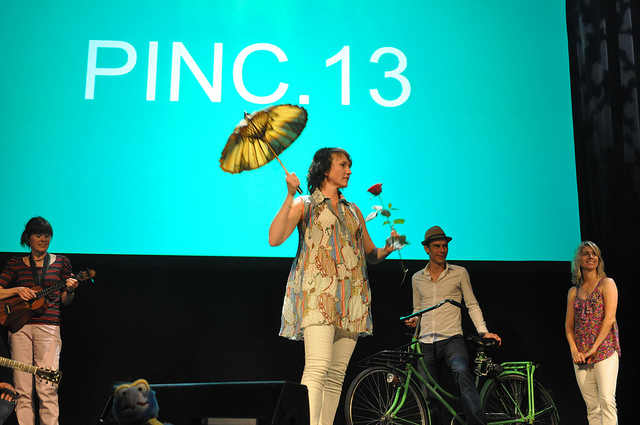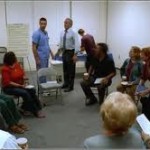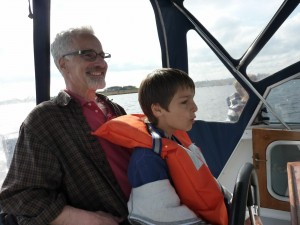After all this public speaking, I’m going to get really personal in this post. Sort of like spring cleaning. It’s also a good chance to practice my narrative writing, in case I ever manage to start my next book.
 I just woke up from two rotten dreams. They used up half my night. In the first, I was in love with, or at least dating, an unknown woman. It seemed we had a future together. Then, in the middle of some sunny, social activity, she turned to me and said: “The trouble with you is that you talk too much.” I was stunned. How could she? It reminds me now of the time Lissy, the girl across the road, suddenly turned to me and said: “The trouble with you, Marc Lewis, is you’re fat!” I was eight at the time, not actually fat, but the memory still burns. Back in the dream, this woman’s invective spelled the end of our relationship. I flung back a stinging rebuke: I told her she raised her voice unpleasantly at the end of her sentences. So there! But now I was stumbling down a dirt road, utterly alone and lost, wondering where I could find drugs or booze.
I just woke up from two rotten dreams. They used up half my night. In the first, I was in love with, or at least dating, an unknown woman. It seemed we had a future together. Then, in the middle of some sunny, social activity, she turned to me and said: “The trouble with you is that you talk too much.” I was stunned. How could she? It reminds me now of the time Lissy, the girl across the road, suddenly turned to me and said: “The trouble with you, Marc Lewis, is you’re fat!” I was eight at the time, not actually fat, but the memory still burns. Back in the dream, this woman’s invective spelled the end of our relationship. I flung back a stinging rebuke: I told her she raised her voice unpleasantly at the end of her sentences. So there! But now I was stumbling down a dirt road, utterly alone and lost, wondering where I could find drugs or booze.
Next, I was in a Chinese restaurant with family, friends, and someone resembling my ex-wife. I’d been dumb enough to order the buffet menu, when only a few scraps remained in the big pans on the counter. I saw the contempt in her eyes. I felt humiliated and isolated. The restaurant was going to close soon, and there I was, with a big bill and a small meal. But Ms Ex was not only contemptuous, she also turned cold and distant. Disconnected. That’s always been my worst fear. Next scene, I was at home (some home) with family, wondering if our visitors had brought a bottle of painkillers I could steal from.
 When I woke up, ouch! What a way to start the day. But I lay in bed for awhile, thinking about my second marriage and how it ended. I’d been a good husband, actually a very good husband. Loving, supportive, faithful, as passionate as possible with three kids around, working my butt off to take care of those kids while earning tenure at the University of Toronto. Rushing home to help with dinner, then working late to get everything done. (Was that the problem?) And teaching an extra course to pay for our trip to England — my first
When I woke up, ouch! What a way to start the day. But I lay in bed for awhile, thinking about my second marriage and how it ended. I’d been a good husband, actually a very good husband. Loving, supportive, faithful, as passionate as possible with three kids around, working my butt off to take care of those kids while earning tenure at the University of Toronto. Rushing home to help with dinner, then working late to get everything done. (Was that the problem?) And teaching an extra course to pay for our trip to England — my first  sabbatical! Eleven days after we landed in Cambridge, nine years after we first got together, I discovered that she’d been having an affair with some Italian guy the last several months in Toronto. There was a half-finished email to a friend, open on the computer in the living room, describing how much she missed him.
sabbatical! Eleven days after we landed in Cambridge, nine years after we first got together, I discovered that she’d been having an affair with some Italian guy the last several months in Toronto. There was a half-finished email to a friend, open on the computer in the living room, describing how much she missed him.
A million times ouch! I drove around England for three days, nearly suicidal. Drinking and driving. Taking crazy risks. Then back to Cambridge, where there were kids to consider.
Things went downhill pretty fast after that. She left for Toronto within four months, then we separated legally five months later. She had not been eager to patch things up. Meanwhile, I’d spent most of my sabbatical in beautiful Cambridge slumped in depression, pretending to work and caring for my 8-year-old daughter. I’d loved that woman. And now she’d become cold, distant, and uncaring. Just like the woman in my dream, her ghostly descendant. I’d been off opiates for roughly 15 years at the time. Was I tempted to go back to them? Of course I was! But instead I drank. Every evening for a few months, scotch and/or beer. A lot. But not too much to put my kid to bed and get her up in the morning.
 For me, substance use and substance addiction have always been a remedy for loneliness, abandonment, disconnection. The formula in my child’s mind is a simple one: disconnection from someone you thought was there for you = isolation = danger!!! Opiates made me feel safe. Booze at least numbed the anxiety. Ever since those years in boarding school, and probably long before that, loss of connection was my primal fear. It’s why I became an addict. And it’s still my primal fear, hence the dreams last night. I don’t think those things ever go away.
For me, substance use and substance addiction have always been a remedy for loneliness, abandonment, disconnection. The formula in my child’s mind is a simple one: disconnection from someone you thought was there for you = isolation = danger!!! Opiates made me feel safe. Booze at least numbed the anxiety. Ever since those years in boarding school, and probably long before that, loss of connection was my primal fear. It’s why I became an addict. And it’s still my primal fear, hence the dreams last night. I don’t think those things ever go away.
Yesterday I had a long lunch with a 24-year-old guy who’d had a serious — really serious! — video game addiction. “Pieter” wanted to meet me after reading my book. While nibbling and basking in a rare stretch of Dutch sunshine, I asked him about the games he’d played. He’d been a captain, a general, a Roman conqueror, leading his army over the mountains to subjugate foreign armies and occupy new lands. He was a  great leader of men — for 10-15 hours a day. And then he’d come back to the real world and realize that another month or another year had passed, without having accomplished anything at all. Finally, at the age of 19, he was so tortured by his addiction that he managed to give it up. He couldn’t stand the idea that he was a hero in his games but an abject failure in his life. He spent the next two years emerging from a deep, lingering depression.
great leader of men — for 10-15 hours a day. And then he’d come back to the real world and realize that another month or another year had passed, without having accomplished anything at all. Finally, at the age of 19, he was so tortured by his addiction that he managed to give it up. He couldn’t stand the idea that he was a hero in his games but an abject failure in his life. He spent the next two years emerging from a deep, lingering depression.
The longer I talked with Pieter, the more I noticed something odd. He had a strange, half-hidden arrogance mixed with his humility. He ended our lunch telling me, in great detail, how he’d connected deeply (during a workshop) with a really unattractive woman and taught her that even she could be accepted by a man as, um, accomplished, cool, and desirable as himself. It hit me like a ton of bricks: he still construes himself in terms of status and prestige. He always has. Which means he’s always been afraid that others would not recognize his value — something he soon confirmed.
What he’d gotten out of his gaming was a sense of mastery — exactly what he couldn’t find in his life.
He’s still missing epic-hero status, but he stuggles to stay in the running. At least he’s past his addiction and has a chance to recognize what he’s missing. And maybe to learn to live with the next best thing: a modicum of success. And I’m still missing a deep sense of security. But at least I’m past my addiction, and I’m (still) learning to live with the next best thing: a degree of self-trust, and a family who loves me and needs me for now.
…But if you try some time, you might find…you get what you need!
–The Rolling Stones



















